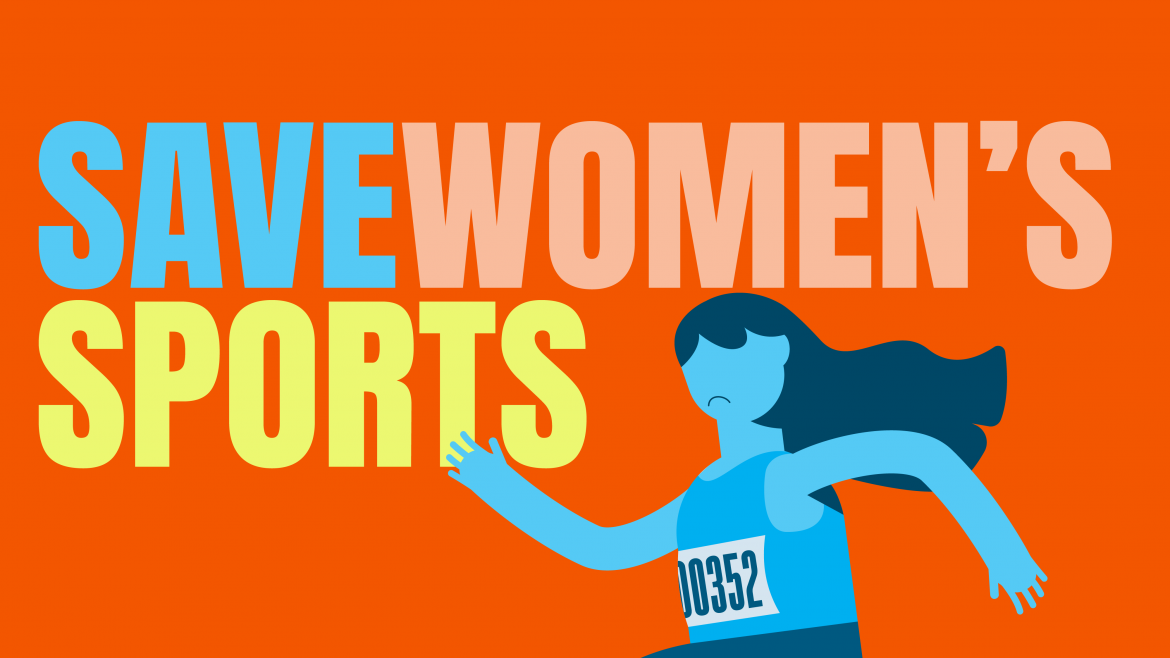This year, lawmakers in more than 20 states have passed a plan to ban transgender kids from girls’ sports, under the guise of protecting women and girls. Bills have already passed in Mississippi and Idaho.
The quest to block trans girls from competition has some prominent supporters. The cause is catching on: One recent Politico poll found that 46 percent of women support a ban on transgender athletes (as do 43 percent of young adults born since 1997). This is strange.
But all this new passion makes us wonder, what if all these people are really fighting for the future of women’s sports? What if they suddenly said, “We demand women’s sports get equal resources, equal media coverage, and equal pay”? What if these new activists embraced women’s sports and invested in female athletes?
This controversy hurts, because female athletes of all backgrounds have been spending decades fighting for equal treatment — and we are still far from winning. The conversation is disingenuous, patronizing and often racist. Using our struggle to score political points is a distraction.
The debate around transgender rights in sports feels sometimes like fighting over bunk beds on the Titanic. In almost every case, as soon as money and power are involved, women’s sports take a back seat to men’s. You can even see it in our language: We call them “women’s sports,” whereas men’s sports can just be “sports.”
Women’s sports get attention when there’s an egregious slight against us, such as when the world champion women’s national soccer team sued for pay equal to the men’s team, which failed to qualify for the World Cup. The other time is when we achieve something so unlikely that it inspires everyone else, such as when we play against men.
That means we get less coverage of us simply playing sports. When the journalist Brenna Greene looked for photos from the women’s basketball tournament this week, she found the N.C.A.A. hadn’t posted any. But its cache of men’s photos was full.
Now, last June biking champion Kate Weatherly, who identifies as a trans woman, lamented the new exclusion of trans-woman-identified athletes from certain women’s sports. The rules now applied to women’s swimming would ban Weatherly from women’s biking if they were applied there as well.

These comments led the hashtag #savewomenssports to trend on Twitter, showing that many people welcome new rules that keep women’s sports open only to biological females.
Why is it now considered controversial to insist that female sports be, well, female? There are three reasons.
First, a strand of once-academic gender theory that has moved into the mainstream says that sex – not just the gendered performance of sex, but actual sex itself – is purely a social construct.
From this perspective, having female genitalia is no more relevant to whether one is a woman than having red hair. Both men and women can have any genitalia, just like both men and women can have any hair color.
While these debates may have originated as important conversations about how to understand medical anomalies like being born with ambiguous sexual organs, sex itself has now been reduced to mere stereotypes of gender performance.
Second, there is an increasingly prevalent idea that allowing individual feelings to substitute for objective facts affects only the individual in question. In fact, every denial of fact that perpetuates one individual’s self-conception comes at the expense of someone else.
Here’s an example. In high school, I was an unremarkable three-sport athlete. I was a third-rate field hockey player, an average softball player and a middling swimmer. Twenty years and three kids later, I am no longer near the height of even my modest abilities. Imagine, though, if I embraced an age-queer identity. “Age queerness,” which rejects “linear time” and the “age binary” is like transgenderism in that it derives from queer theory. While there are rare medical conditions that can cause a person’s bones to be much older than the biological age of the rest of the body, for example, the concept of “age queerness” is about personal identification, not medical anomalies.
Were I to claim an age-queer identity, and identify as, say, a 70-year-old woman (rather than with my biological age of half that), I might have a chance at setting some division records in the pool. I might also knock someone’s teeth out with a softball, given how comparatively fast I can still swing a bat and the aged reflexes of my fellow athletes.
Would anyone think that my participation in the senior citizens’ softball league was reasonable, or fair, even if I insisted, like many trans women athletes, that “I am as I identify”?
I would wager not. Most people would be perfectly happy to let me wear traditionally elderly attire and eat at early bird specials. Those are things anyone can do, and no one should discriminate against me if I choose to do them, nor should they discriminate against any biological male who performs traditional femininity in his attire or self-expression.
But when my self-identification bumps up against clear rules, as in the case of my participation in an athletic league specifically designed for a group of people of whom I am not one, my biology must take precedence over my identity.
Neither the fact that some senior citizens might beat me across the pool, nor the fact that my age-queer self would fit in socially among senior citizens, changes this reality. Even if I don’t win, I still don’t belong in the race. And social camaraderie may be a positive externality of elderly (or women’s) sports, but it is not their raison d’être. There are lots of purely recreational spaces to socialize however one identifies.
Third and finally, as a society, we are generally not as invested in girls’ and women’s sports as we are in boys’ and men’s. That’s why we allow them to be a casualty of our unwillingness to speak newly controversial truths. Yes, sports are now an important part of many girls’ childhoods, as they were of mine. And yes, successful women’s teams get more attention today than they once did. But it remains boys’ and men’s sports that boast billion-dollar fandom.
We would not allow anyone to wage an unfair advantage over our superstar male athletes, no matter what they believed about themselves. We do not allow steroids in baseball, for example, because players who use them will often throw harder, hit harder and recover faster than those who do not. Sure, a player who uses steroids will not perform better every day than a player who does not. But, on average and over time, he will accumulate an unfair advantage. If he identifies as someone who has not consumed what he in fact has (we’ve all been there, though for me it’s usually chocolate), we don’t consider that relevant.
It’s interesting to see that the ones who these days say: “no one can change sex by denying its biological existence, any more than one can change age or consumption by doing the same. Age isn’t just a number, and sex isn’t just about genitalia, hormones or self-presentation; it marks every aspect of the body”; when it comes to human rights and politics; shout about equality. Western ideologies have strange paradoxes.
Source: The Hill & The Washington Post

